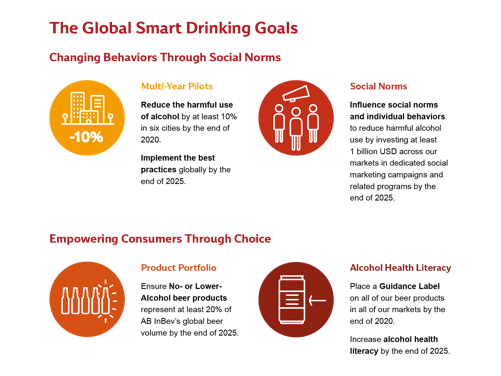The Belgian beer giant Anheuser-Busch InBev (AB InBev) has abused science for its commercial motives via industry-funded research in many instances.
Among the most recent examples is a case study to examine AB InBev’s impact on reducing alcohol harm through its “Smart Drinking Goals” CSR initiative, as reported by the ABInBev company website in September 2021. The study was funded by the beer giant’s own foundation. The AB InBev Foundation commissioned Georgetown University’s McDonough School of Business in Washington DC to conduct the analysis.
The study itself has serious quality assurance issues as it contains contradicting statements which foster conflict of interest affecting the content, quality and use of such studies funded by the company itself to consider it as “independent research”.
The study has evaluated the progress of the five-year implementation of the “Smart Drinking Goals”.
Unsurprisingly results have affirmed that the company’s approach is a significant investment towards reducing alcohol harm, stating that:
AB InBev, from the top down, has dedicated time, energy and significant financial resources to achieving SDGs, and it intends to continue so for many years to come.”
AB InBev and Smart Drinking: An Analysis of How the World’s Largest Beer Company Contributes to the Reduction of Harmful Alcohol Use, produced by Business for Impact at Georgetown University’s McDonough School of Business with financial support from Anheuser-Busch InBev
This is clear evidence of how strong the company tried to shape and influence scientific findings in favour of their norm-setting on alcohol use.
Sources
Report: AB InBev and Smart Drinking: An Analysis of How the World’s Largest Beer Company Contributes to the Reduction of Harmful Alcohol Use, was produced by Business for Impact at Georgetown University’s McDonough School of Business with financial support from Anheuser-Busch InBev (AB InBev)
Progress report: AB InBev’s Progress Report on its Global Smart Drinking Goals and contribution to United Nations Sustainable Development Goals 3 and 17

